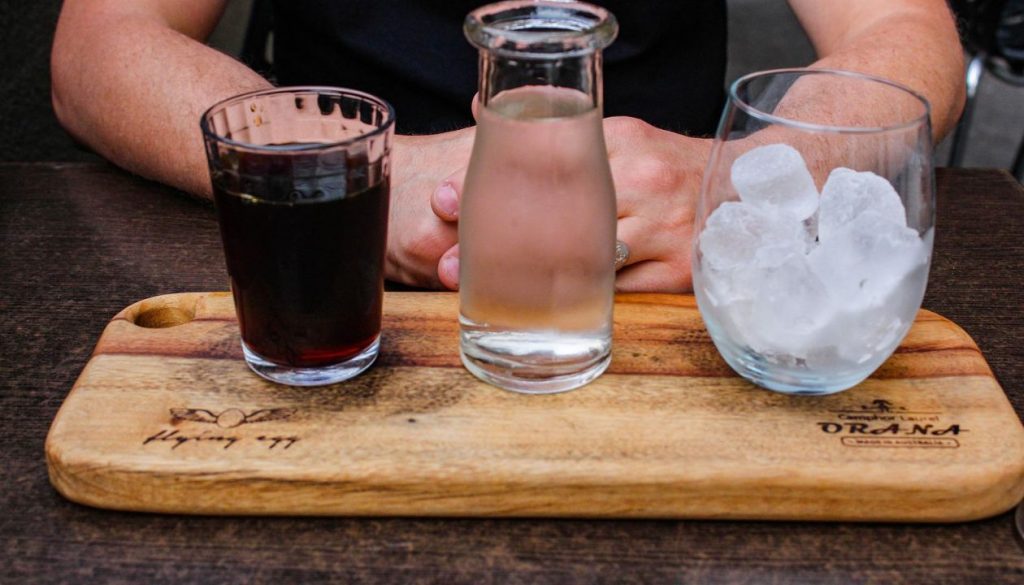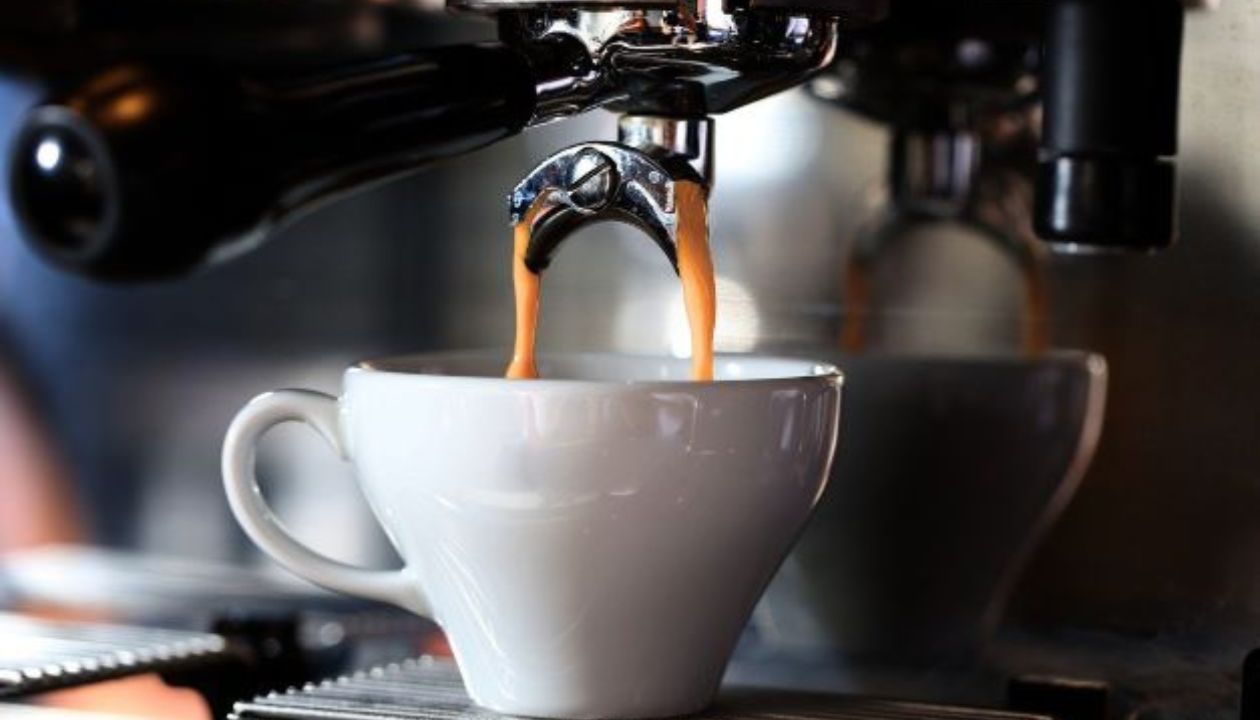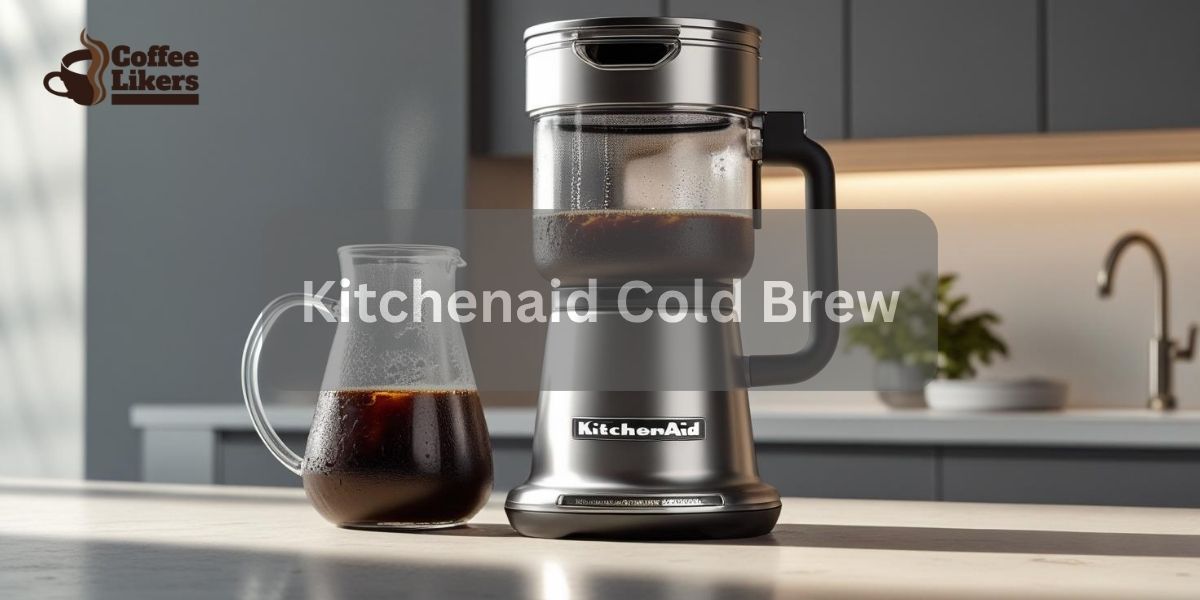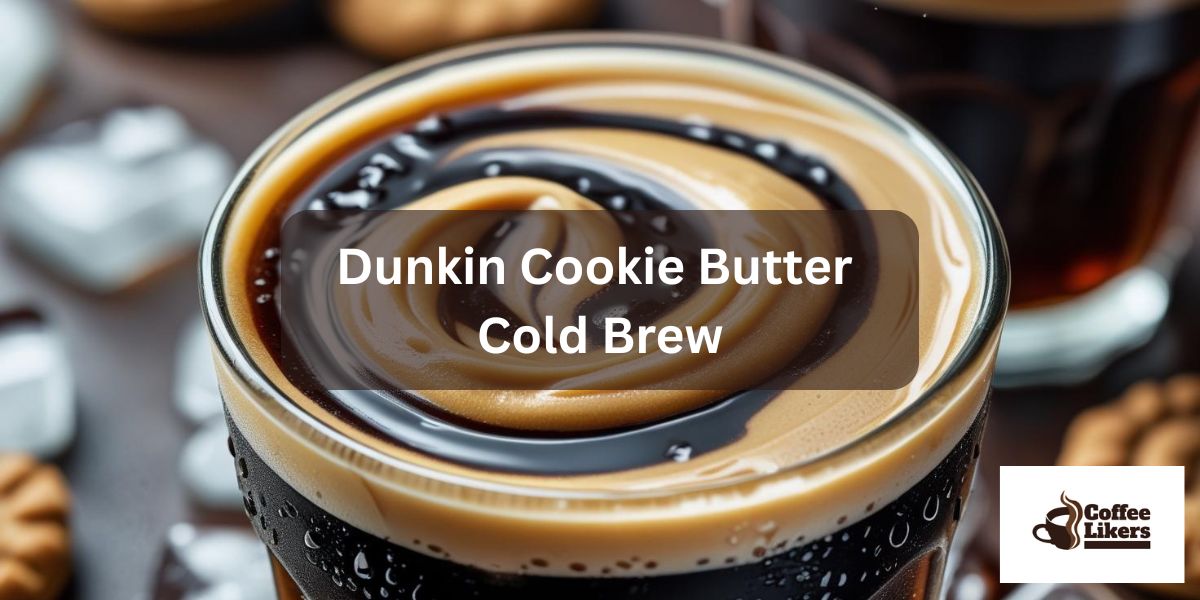Wondering if soft water works in your coffee maker? Water plays a vital role in brewing the perfect cup, whether you’re at home or a coffee shop. It’s the key solvent for coffee, making that rich, aromatic brew we love.
But what about using bottled water? Coffee, that worldwide favorite, gets its magic from caffeine. Its dark hue, bitter kick, and slight acidity wake up our senses.
In this article, we’ll explore the question, can I use soft water in my coffee maker and its impact on different water types on coffee flavor?
Is it possible to use soft water in my coffee maker? You can use soft water in your coffee maker. Soft water won’t harm your machine, and it might even enhance the taste of your coffee by preventing mineral buildup that can affect flavor. Just ensure your water isn’t too soft, as extremely low mineral content might make the water taste flat.
Can I Use Soft Water In My Coffee Maker: Short Overview
Using soft water in your coffee maker is a smart choice. Soft water helps prevent mineral deposits that can clog your machine over time. This can lead to a smoother brewing process and better-tasting coffee.
Be cautious not to make your water overly soft, as it might affect the coffee’s flavor. A balanced approach can help you enjoy a delicious cup of joe without worrying about machine maintenance.
What Is Soft Water?
Softened water is the absence of dissolved salts of metals like calcium, iron, and magnesium while hard water has all these minerals, which can create insoluble deposits like scale in boilers or bathtubs and washing machinery.
In another way, it can be said that water with a low concentration of calcium carbonate and other ions is referred to as softening the water. Soften water, rather than having higher amounts of calcium and magnesium, has a larger concentration of sodium or salt.
For most people, softened water is quite safe to drink. People are often concerned about the high salt levels found in softened water. Actually, softened water has just slightly more salt than hard water and does not reach levels that are dangerous to healthy persons.
Surface water like river water, rainwater, or bottled water are examples of softened water. The pH of soft water is 6.5 or less. Cleaning with softened water is suggested since it prevents soap scum and the amount of minerals stains.
You might even save money on your water cost by not having to re-wash clothes or dishes, or by taking longer showers to feel properly washed and disinfected because it’s a more efficient and productive cleaning agent.
Using Soft Water In Coffee Maker
Soft water is suitable for all coffee makers to prepare delicious coffee in a coffee shop. But is water too soft for coffee? so it is valid to question, can I use soft water in my coffee maker?
The most crucial step to follow when using coffee makers is to soften the water. You can also use bottled water. High calcium or magnesium concentration will surely destroy the devices, and lead to costly fixes. so it can be a problem to choose hard or soft water.
Water, as previously said, contains minerals. These may need to be removed from your water to prevent your machine from becoming clogged. Water softening is the term for the procedure of removing them when you brewing coffee in a coffee shop.
Ion exchange technology is utilized in the softening process to take out mineral ions and replace them from hard water with sodium ions. A flat taste has been introduced in coffee brewing due to softening water. Softened water will protect the equipment from scaling while hard water causes damage to coffee makers.
A water softener can’t remove chlorine or chloramine from water. The resin beads are damaged due to chlorine or chloramine oxidation power. Which water softeners can do? However, exceptions exist espresso machines benefit from softened water on occasion, but these are specialized equipment, so it’s a unique situation.
The scent of the coffee is affected by the hardness of the water, and whether to use hard or soft water is a personal preference. The number of minerals in the water, particularly magnesium and calcium, can be used to determine water hardness and mineral buildup.
Everyone does not hold the same viewpoint. Some people believe that hard water makes coffee taste worse. Some say, due to the presence of minerals in hard water, coffee can enrich superior taste and odor to brew.
The coffee machine’s functionality is greatly influenced by its hardness. Mineral deposits have the potential to harm coffee makers, In that case, we should use filtered water.
Is Distilled Water Good For Coffee?
Coffee tastes depend on hard and soft water and types of coffee grounds. Reverse osmosis water, bottled water, and drinking water are used in making coffee. If you want a great cup of coffee you may need two minerals.
It is fundamental. Because it has no flavor, it will not produce a nice cup of coffee. Because it lacks minerals, your coffee might flavor flat due to being minerals removed.
It may cause the equipment to malfunction. Based on the probable reduction of vitamins or minerals in the body, which may create health concerns. When using it with espresso machines, the machine will be damaged and you cannot brew.
Because the metallic components of your coffee machine (copper, steel, and brass) contain minerals, it takes ions from those metals. This gradually degrades your coffee machines.
Previously we understood that has undergone a filtration technique that removes any impurities that may be present. It also depletes the water of vital minerals like magnesium and calcium.
As a result, it is advised for small equipment such as steam irons, hot water containers, and coffee machines for better coffee to your morning routine. When it comes to human nutrition and great coffee with good taste you need to follow the brew method for the best cup.
According to the World Health Organization (WHO), drinking this prevents the absorption of magnesium, calcium, and other important minerals.
According to the Specialty Coffee Association, it has a bad flavor when compared to tap water.

Spring Water For The Coffee Maker
Water that comes straight from a source, generally underground, to the bottle is known as spring water. It is not chemically synthesized, it is not reprocessed, and it is always safe for human beings to consume.
It is ideal for coffee as long as it has the proper mineral concentration; some have too many minerals, which alters your coffee flavor. You may need to test a few brands before finding one you enjoy.
The brand named ‘Evian’ is the best brand for this type of all. Spring bottled water does not only make the coffee delicious but also helps to increase the efficiency of the coffee machine. When people boil water in their new electric kettles, everyone has seen the salt scaling be formed.
Can I use soft water in my coffee maker? The same thing will happen to your coffee makers, destroying the filter and other components with time. You may sit back and enjoy the rich flavor of decent coffee produced with this type of water. After you have that coffee machine perfectly clean.
It is preferred since mineral water is generally “too powerful” to achieve the correct extraction required for a nice cup of coffee. However, the sort of coffee you drink and the location you’re staying are frequent factors.
Is It Safe To Use Tap Water For Coffee?
In order to make a cup of coffee, most importantly you’ll need water. It has the power to make or destroy the flavor. So, can I brew coffee using tap water?
Following my investigation, I discovered that you can make coffee with tap water as long as it’s good, looks, and smells clean, and is fresh. When you prepare coffee using tap water, the taste and flavor will differ from time to time.
In this treatment, chemicals are utilized. Chemicals are added to the water by various firms at different periods. The water will have high mineral content on certain days and low mineral content on others.
This indicates that the quantity of flavor extraction will vary, giving you a variety of flavors in your coffee. Not all minerals and chemicals in tap water will give your coffee a pleasant or refreshing flavor.
Chlorine and fluoride, for example, are added as part of the treatment process. You will not enjoy your cup of coffee if the two are in excess. You’ll finish up with a cup of coffee that has no flavor.
Instead of being sharp, it will be bitter. Moreover, a sulfurous, metallic, or any other unpleasant flavor is possible. Before treatment, it all depends on your region and the water supply.
In that case, you can use bottled water and soft water for making coffee very good and testy
What Is The Best Water To Use In A Coffee Maker?
In an Espresso machine, you may use tap water. Tap water can be used to maintain the espresso machine working perfectly it depends on water quality. In this type of machine, softened water also can be used to prepare coffee utilizing special techniques.
Third-wave water can be the best option for a perfect cup of better-tasting coffee.
Moreover, spring water can be used in an espresso machine, it includes enough minerals in coffee to generate a powerful flavor profile, but not enough to scale within sensitive equipment.
In a Breville Espresso Machine, aside from filtered drinking water, tap water (with proper upkeep) might be used.
We do not advocate using distilled or reverse osmosis water in coffee and Breville espresso machines since it is abrasive and may dissolve metals. In any situation, a water filter is strongly advisable.
Although there will be less scale build-up, the filtered water will not be pure enough to destroy metal parts. Only softened water is suitable for any coffee machine and should be used as per water quality. A high calcium or magnesium content will eventually affect the equipment and lead to costly repairs.
Sometimes this type of good water includes two important minerals: calcium and magnesium. If you use coffee machines, you may be used to it. Scaling may be avoided by utilizing fewer minerals and minimizing their development for the best water.
Disadvantages Of Soft Water
The disadvantages of soft water depend on the number of minerals. Drinking softened water for coffee on a regular basis raises salt levels, which can cause a variety of health concerns, including high blood pressure.
You must compare hard or soft water to coffee. The softening process causes the water more volatile, allowing it to take up more undesired substances with odor-free from your pipes.
Water softeners are used worldwide to remove impurities and adjust the number of minerals to odor-free water to brew the best cup of coffee.
Conclusion
Apart from the comforting post-coffee experience, the delightful aroma of freshly brewed coffee is a big draw. Morning coffee’s scent is unparalleled.
The taste, aroma, bitterness, and flavor of coffee hinge on the water used. Trying soft water can be enjoyable. If you’re content with your current brew, stick with it—tap, filtered, or bottled water.
But if you’re curious about enhancing your coffee, experiment with filters or re-mineralized distilled water; it could make a noticeable difference. Using soft water in a coffee maker may be the best option and now we’ve got the answer to the topic “Can I use soft water in my coffee maker?”





Leave a Reply